Filter
| Muranga | |
| 1,500 – 1,630 masl. | |
| SL28, SL34, Batian | |
| Washed | |
| Small producers |
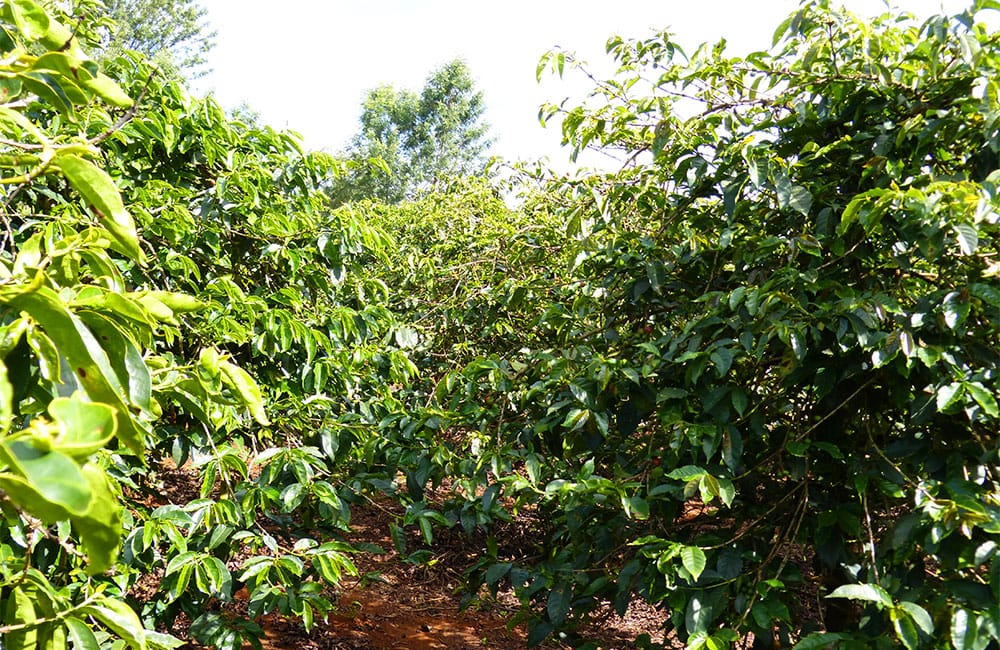
Kangurumai is the name of the mill operated by the Kangurumai Cooperative Society, a cooperative located in the Muranga region of central Kenya.
The cooperative is in the Aberdare mountain range, surrounded by forest and rich volcanic terrain.
The altitude, about 1,600 meters above sea level, the characteristics of the terrain and the atmospheric conditions, make this region an ideal place for the cultivation of specialty coffee and where we can find some of the best coffee in this country.
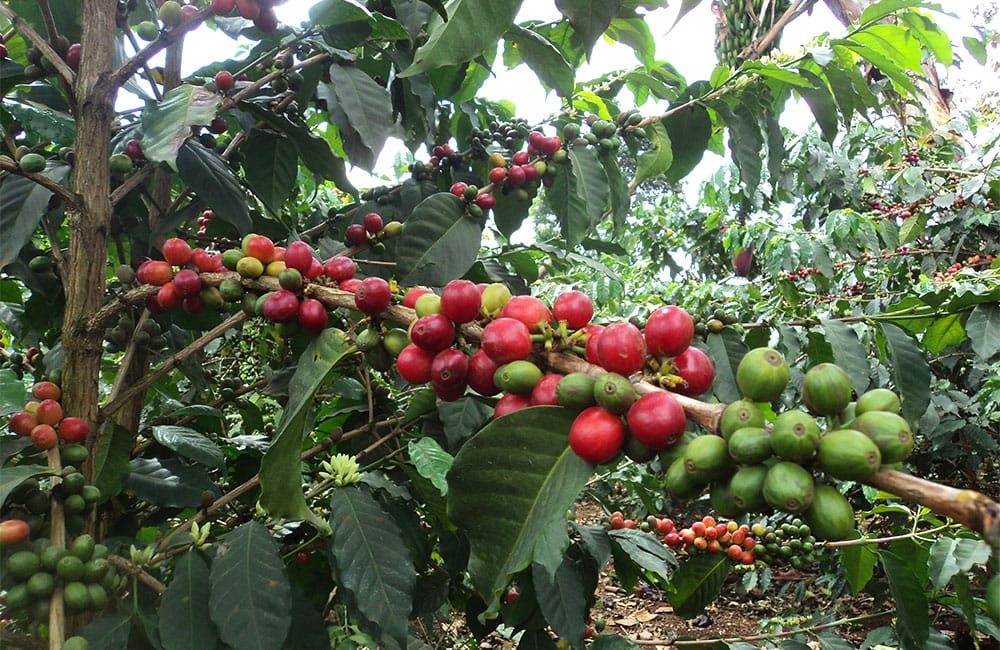
Coffee Growers in the Muranga Region
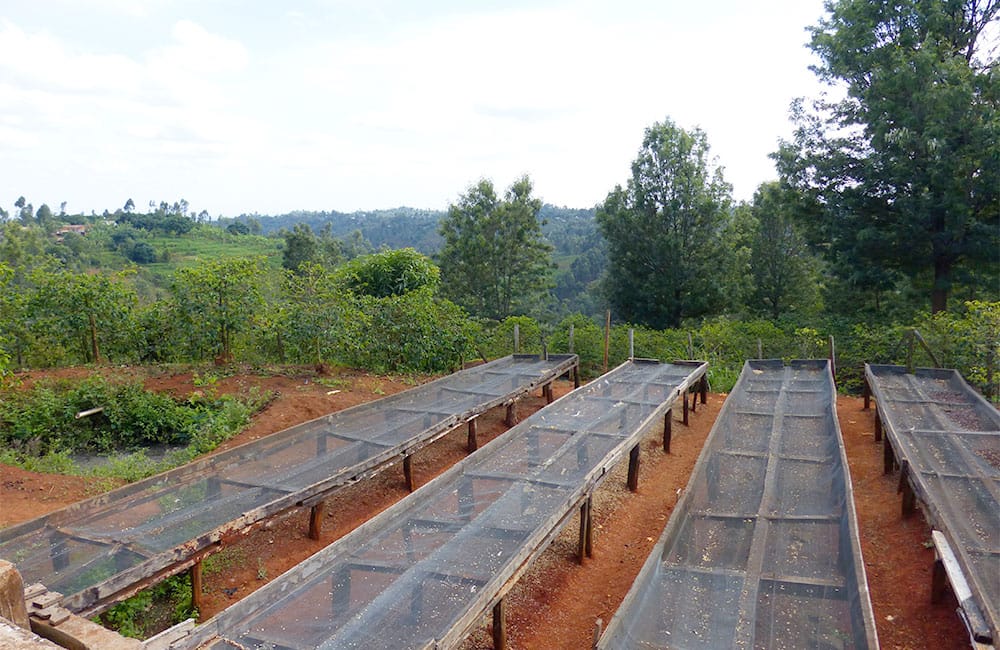
The coffee growers of this region tend to have small plantations, of no more than half a hectare and with about 250 coffee trees.
In this region, farmers have coffee in addition to other crops.
Coffee serves as a source of cash income, something that is more complicated with other crops, which tend to be more focused on local consumption and sale.
Cooperative System for Coffee Cultivation in Kenya
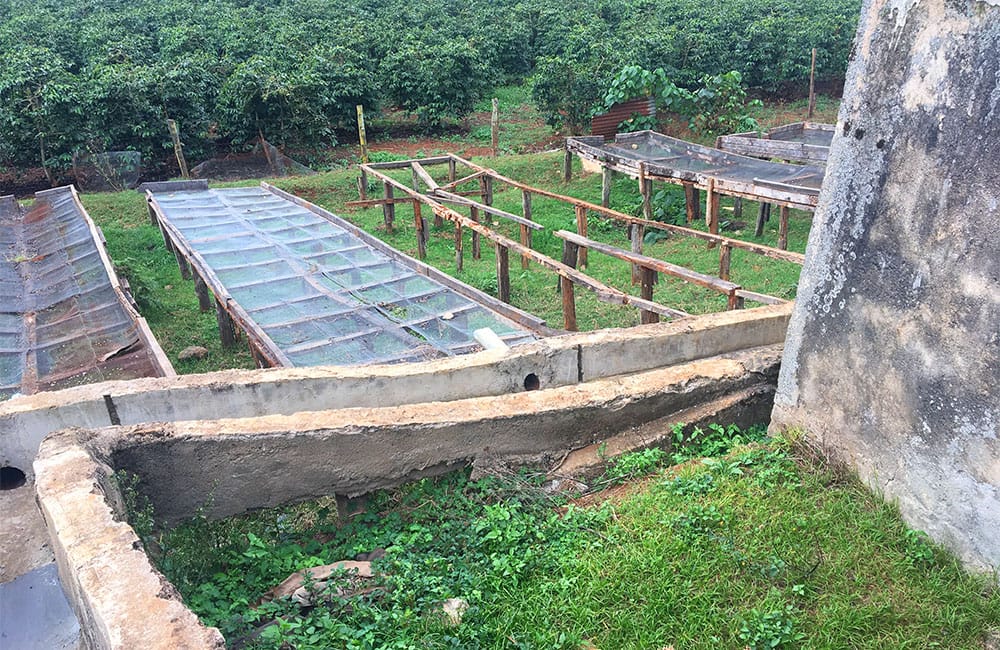
Kenya’s coffee growing and selling ecosystem is largely organized around cooperatives.
This allows small producers to obtain a higher return for their coffee and greater traceability.
Coffee growing in Kenya is relatively new compared to other neighbouring countries, such as Ethiopia, and is usually carried in small plantations.
These two factors have led to the development of an ecosystem of cooperatives throughout the country through which small producers collaborate and reinforce each other.
Each cooperative can manage one or more mills where the surrounding producers bring their freshly picked cherries.
Coffee Processing at the Kangurumai Washing station
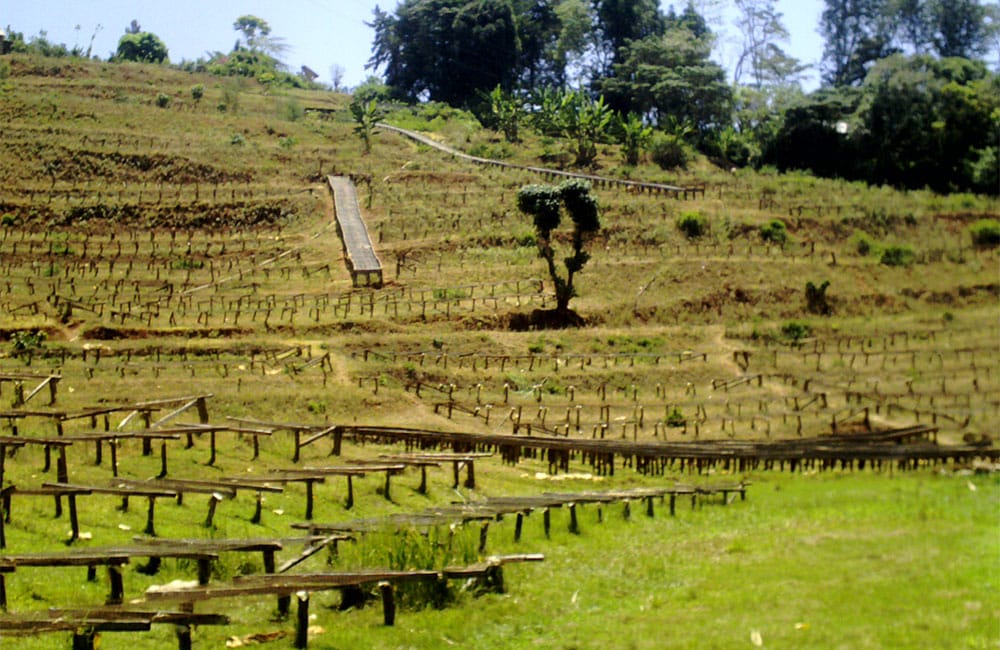
The coffee growers who bring their coffee to the Kangurumai plant mainly grow the SL28 and SL34 varieties.
These varieties are the most widespread in this country since they has a deep root structure that allows them to maximize water resources.
Coffee growers selectively hand-pick the cherries to ensure that only those that are at their optimum ripeness reach the washing plant.
Once there, the plant employees meticulously supervise the reception to separate the ripe and dense cherries through a floating and screening process.
Once received, the cherries are pulped and left to ferment between 16 and 24 hours.
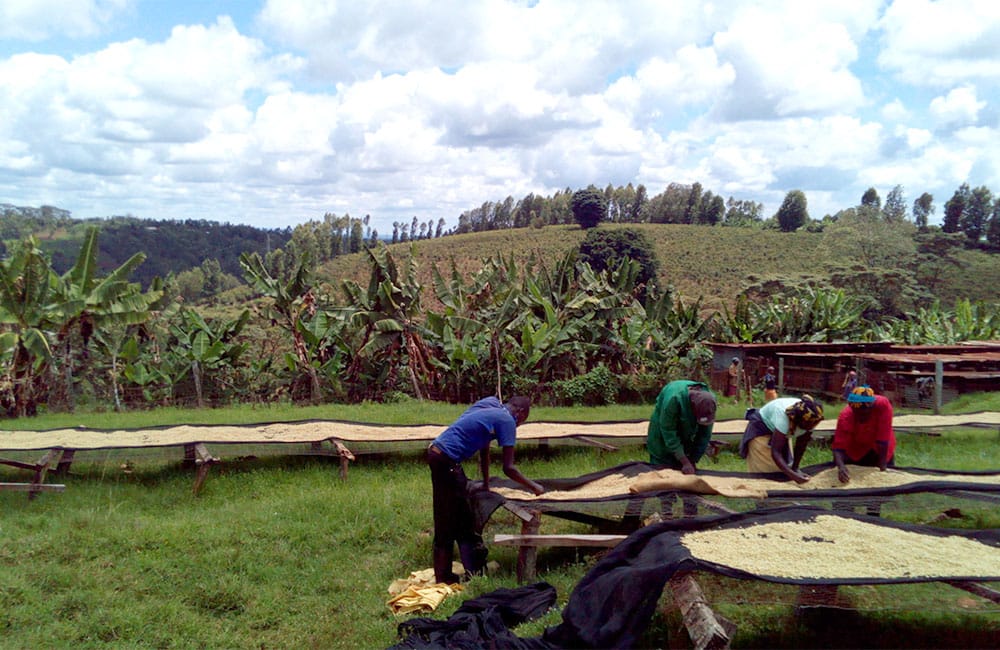
They are then washed in clean water from nearby rivers and left to macerate for 12 hours.
Finally, the coffee beans are left to dry on raised beds for 14 to 18 days.
During this time, employees frequently stir the coffee to ensure uniform drying. In the hottest moments of the day and at night the coffee is covered to achieve a slow drying.
When the coffee is ready for export it is classified depending on the size.
Those that have a size 17/18 are AA, while the 15/16 are AB. The AA or AB grade is not an indication of quality, as many people believe, but of size.
Buy traceable coffee from Cooperatives
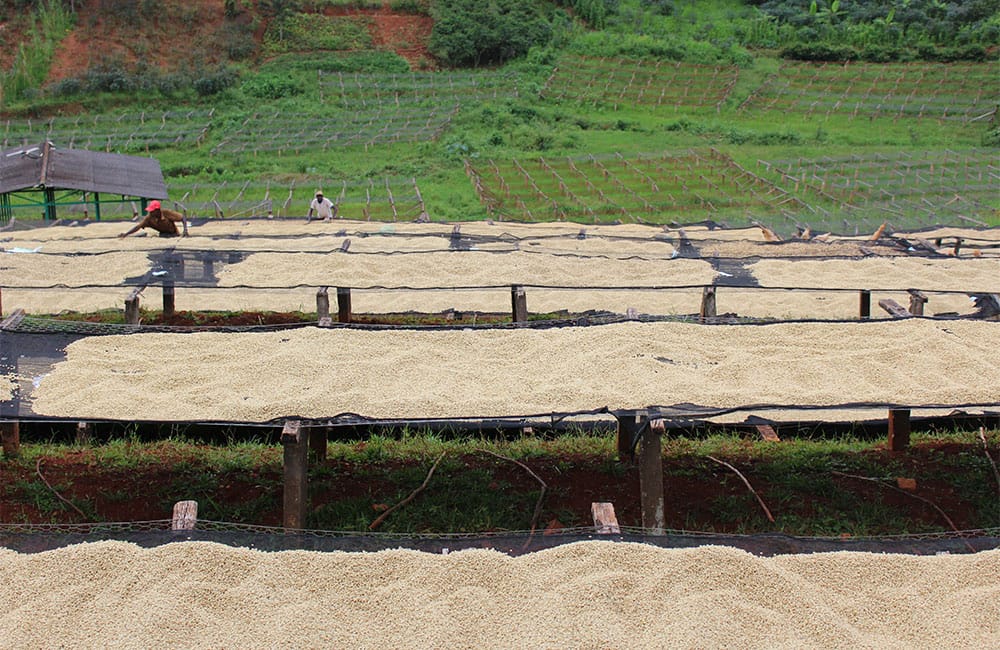
Es que exista trazabilidad del producto desde el origen hasta el consumidor, que está trazabilidad repercuta en un mayor beneficio para los miembros más importante de la cadena de producción -los caficultores- y le permita una vida más digna y que estas prácticas respeten el medio ambiente.
En muchas zonas de entornos rurales, como en Kenia, las cooperativas ayudan a que esto sea posible.


